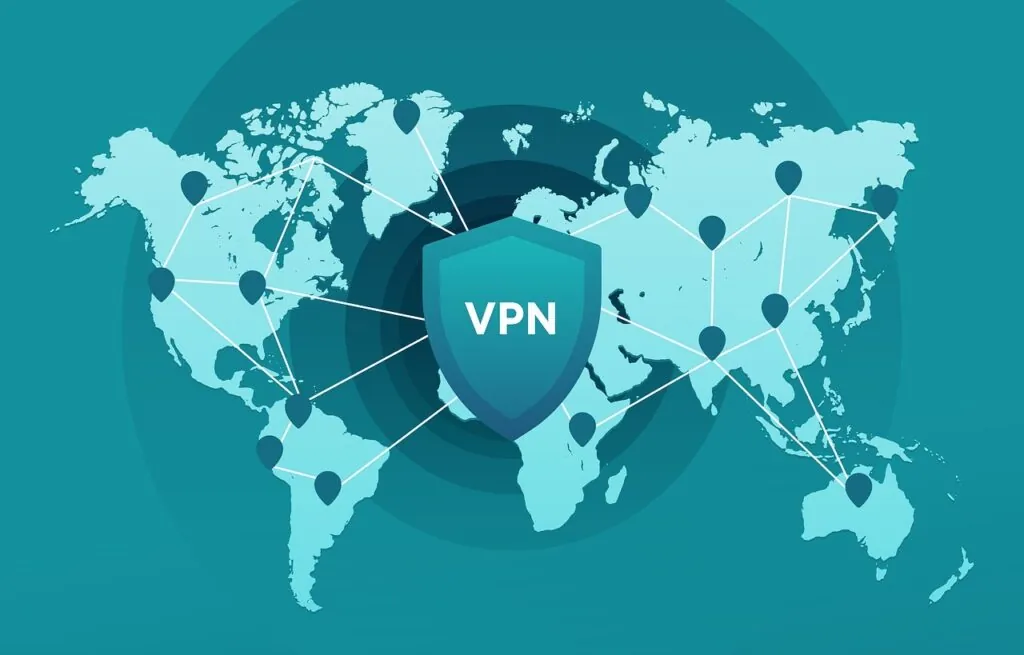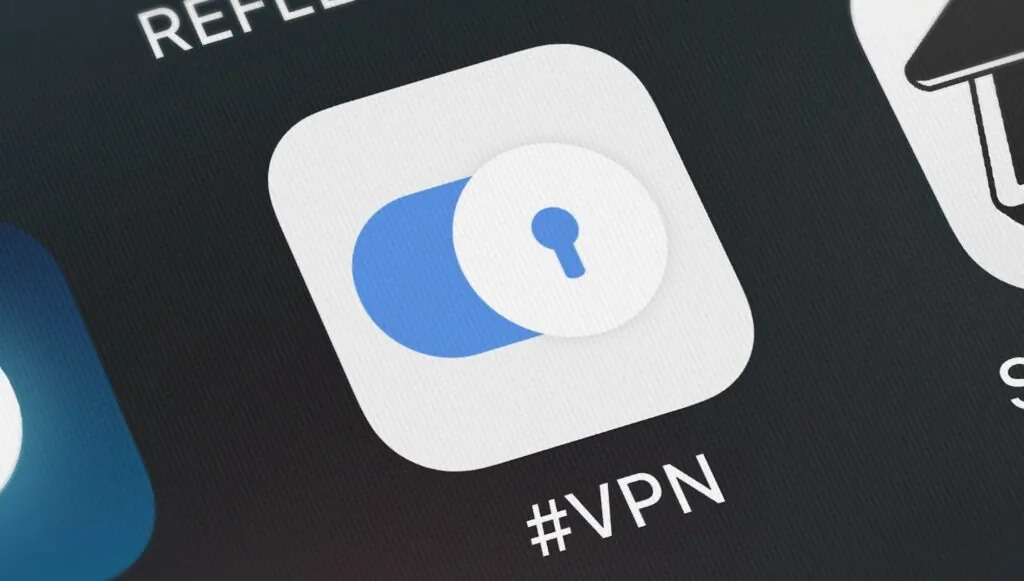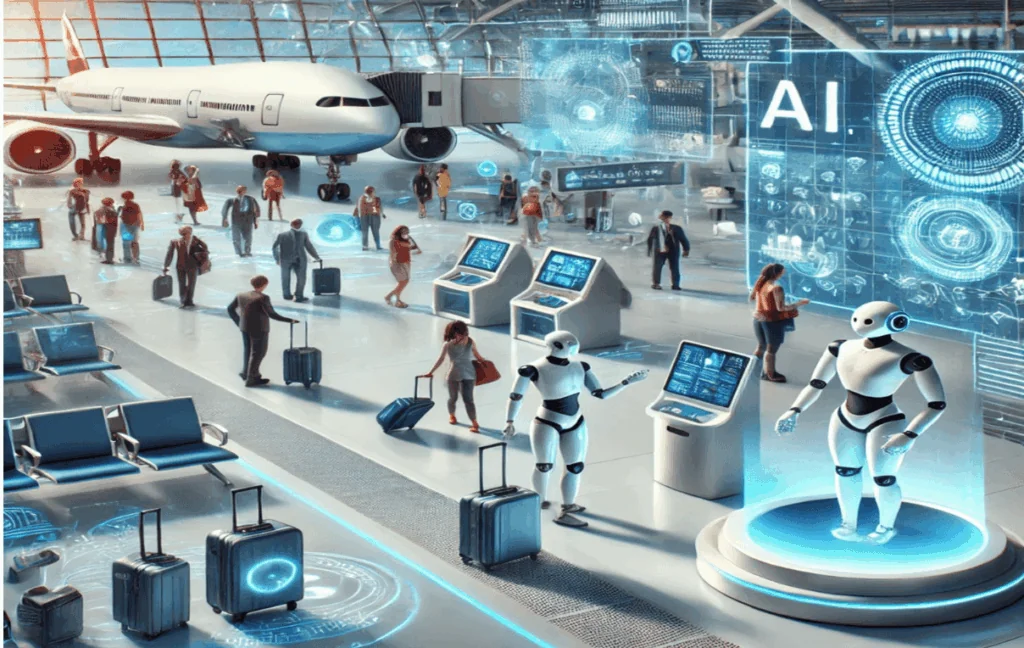
Travelling is evolving so fast that even the majority of us cannot keep up with it and hit the road with our bags. Couples have disappeared when one could see people waiting in lines at the airport counters with the paper tickets and waiting to be served. Technology has been the final variable changing the way that we go about our business navigation, including how we plan our trips and the way we get around unfamiliar cities and carry our data safely in the process.
The next generation is already innovating in the sphere of travelling. This is because in the present scenario, AI assistants are producing customised itineraries, which only take a few seconds to prepare, digital passports are simplifying the process of crossing the border, and VPN Apps are becoming part of the list of necessities that travellers have when abroad. Such innovations are convenient and not only change the entire travelling process, but also make it smoother, safer, and more personalised. The awareness of such technologies can help you to travel smarter and safer around the globe, which is increasingly becoming interconnected.
Running this blog takes a lot of coffee (and countless hours exploring every destination!). If you found this helpful and want to support more honest, detailed travel guides and itineraries, you can buy me a coffee. No pressure though – I’m just happy you’re here and hope you have an incredible adventure! ????

Table of Contents
The way AI Assistants are revolutionising travel.
Artificial intelligence has come far beyond chatbots. In the modern world, AI helpers know what you like, watch your behaviour, and create travel experiences that can be considered truly personal.
The manner in which AI Customises Your Adventure.
In the present day, the AI assistant can analyse huge data and suggest destinations, places to stay, as well as activities that meet your interests. Price: Sharing that you love hiking and like small hotels, an artificial intelligence assistant may recommend hiking lodges in the Swiss Alps or tech hotels in South Korea (we can tell you more about them here). They are not some unrelated tips; they are founded on advanced algorithms that not only take into account your budget passages, but also your travel history, as well as the time of the year you are going to visit.
The AI-assisted travel preparation is beautiful as it saves time and enhances the precision of the results. You do not have to spend hours rating hotel reviews or restaurant ratings because, within a few minutes, you can get personalized recommendations. There are even AI helpers that keep track of the flight fares and notify you in case the price decreases, so that you can receive the best possible deal.
Practical Applications of AI.
It already has several companies that use AI assistants to enhance the travel experience. Expedia provides a virtual assistant that will help travellers in booking hotels and flights by merely talking to it, whereas Hopper depends on AI in order to decide when to make a certain reservation. At Google Travel, machine learning is applied to sort your bookings, things to do, and also alert you to gate changes and delays in real-time.
The airlines are not left out in the use of this technology. KLM chatbot is a programme powered by an artificial intelligence software programme that will answer questions asked by customers and send the boarding pass through communication applications. These technologies indicate that AI helpers are currently being incorporated into all aspects of the experience, beginning with planning and finishing with the main point.
Digital Passports: A New Era of Border Control
Soon, the conventional passport booklet can be something of the past. Digital passports are the future of international travel documents, which will allow crossing the border faster and increase security.
In the Digital Passports case, there are a few key issues that may be highlighted: What are Digital Passports? Digital Passports denote an electronic counterpoint of the physical Passport employed by governments and various travel agencies during travel within the international system. The Digital Passports case can be understood in the following ways: What are Digital Passports? Digital Passports refer to an electronic analogue of the physical Passport that governments and other travel agencies use when travelling in the international system.
A digital passport is the digital copy of your usual travel document, and it is kept in a secure place on your mobile phone or any other digital device. It is packed with identical biometric data, photographs, fingerprints, and personal information, but in a format that can be checked in real-time at the border control points.
It has significant advantages. The tourists do not have to worry about losing their passports or having to deal with torn pages. The Immigration officers are in a position to confirm identities faster, cutting down on the queues at airports and at land borders. Digital passports also decrease chances of forging, since they are designed with superior encryption and authentication gender that are much harder to duplicate compared with the ability to counterfeit hard copies.
Security Characteristics and International Standards.
Digital passports have digital barriers of security over your information. Biometric authentication implies that the users of the passport files are assured that the person to whom it is issued can access the data. Another technology that is under consideration is blockchain technology, in order to create a tamper-proof record that can be checked irrespective of international borders and still, cannot be breached in terms of privacy.
There are already countries which are testing the digital passport programmes. A common system of digital travel credentials is being developed by the European Union and is being experimented with by countries like Estonia and Singapore. The International Civil Aviation Organisation (ICAO) is currently working on some international standards on a global scale, which implies that digital passports will be accepted and recognised in all locations.
Resolving Concerns and Challenges.
Regardless of the benefits, the idea of digital passports raises valid concerns regarding privacy and the security of the data. The concern of travellers is that hackers can be able to access their biometric data or the government can easily monitor their movement. These issues are legitimate and should be mitigated by effective cybersecurity practices and open data treatment policies.
There are also technical problems. Not every country has the technology to verify the digital passports, and smartphone batteries may run out of charge at that moment. In the meantime, digital passports are likely to co-exist with real passports until such problems are eliminated and usage is more pronounced worldwide.

VPNs: Adventures In a Connected World.
When travelling, it is no longer a choice to remain connected but a necessity. However, the Wi-Fi networks found in airports, hotels, and cafes pose serious security risks to the population. It is at this point that Virtual Private Networks (VPNs) come in as important instruments to the modern-day traveller.
Why Travellers Need VPNs
Once you are connected to the free Wi-Fi in society, your data is prone to data interception. Hackers can easily get hold of your passwords, credit cards and personal messages on an unsecured network. VPN encrypts the traffic of the Internet and establishes a safe tunnel between the device and the sites that you visit. This encryption gives any person an impossible mission of listening to what you are doing on the internet.
VPNs can also come in handy in facilitating the user to use content that would otherwise have been restricted in a given country. Streaming sources usually impact their library on the basis of the geographic location, and some countries do not just limit social media, but also block news websites. You will be able to use such services by connecting to a VPN server in your home country and never leaving.

The Right VPN to Use When Going on a Trip.
Various VPN Apps are not equal. Seek providers that have a wide network of servers, have good encryption systems and have good speeds of connection. An effective travel VPN has servers located in various countries and so you can establish a connection to various places according to your requirements.
You are in a hurry to video chat with your loved ones, at a distance, or your entertainment device is in the air at the disputed speeds. High-performance servers that reduce slowdowns are also invested in premium VPN services. They also have 24/7 customer service, which becomes invaluable should there be a problem with connection in a new time zone.
VPN tips to make good use of VPNs.
The first thing to do is to download your VPN just before you travel. By testing the service from the comfort of your home, you will be able to know how the service works and the troubleshooting aspect of the service before becoming stuck being dependent on the service in your new facility. You should choose a VPN that does not log your internet browsing history – this will not only see that even your VPN provider will not be able to know your privacy.
Always be sure to use your VPN when you are about to access the public Wi-Fi. The principle of automatic connection features is based on a general rule in most Funnel VPN software, which is guaranteed to turn on each time you log into an unsecured solution. This will remove the obligation of having to remember yourself to take precautions. Also, one should keep in mind that VPN can contribute significantly to your security level, yet they cannot be considered panaceas. You should also ensure that you never use sensitive accounts on publicly shared computers, and also ensure that your devices are regularly patched with the latest updates, providing security.
Banking programmes and payment services often consider VPN traffic as questionable. Before travelling, also walk to your bank and inform them of your travelling schedule, and you would prefer not to use VPN when making huge financial decisions, just in case you cannot check your account.

VPN for iPhone: Essential Protection for Apple Users
Apple users travelling with their iPhones need reliable security solutions that integrate seamlessly with iOS. The right VPN for iPhone can make all the difference between a safe, unrestricted browsing experience and one fraught with vulnerabilities.
Why iPhone Users Need Specialised VPN Protection
The devices targeted by cybercriminals, such as iPhones and iPads, are highly favoured among travellers, making them a very popular target. Although Apple products are provided with built-in security features, the security measures do not apply to the encryption of your internet connection in a public network. This is a very vital gap that is filled by a specific VPN specific to iOS.
VeePN is a full-fledged solution for iPhone and iPad users of iOS 17 and above. The application offers the military grade AES-256 encryption, meaning that your information will not be compromised even on the least secure public Wi-Fi hotspots. VeePN has more than 2,600 servers in 109 locations that enable any traveller to use the service anywhere in the world.

Getting ready to revise the Travel Landscape of the future.
The technological change in the travel sector is not on the declining side. By staying abreast of those, the same would make you score on new opportunities and safeguard against new threats.
The best place to start is to get acquainted with the technologies that we are discussing in this paper. Install a decent VPN like VeePN before the next trip, and then use it at home. Follow the news regarding the launch of digital passports in your country and the destinations to which you plan to arrive.
Take the AI Travel Test
AI travel planning systems will determine how they will help you to plan your flights and how they will enhance your itineraries.
Security belongs on the first list. As travel can be more and more digitalised, the demand to protect your personal data grows several times as well. Studies on the use of trusted VPN Applications, using extremely strong passwords for your travelling accounts, or using two-factor authentication where available. These are simple measures that will save your life from exposure to cyber attacks in case of travelling.
You should not be afraid of novel technologies and be healthy sceptics. Not every innovation will be valuable, and some of them will also pose new threats following the advantages.Before adopting some of the new tools of travel, it is worth researching much on the issues of other travellers and security specialists.
Embracing the Journey Ahead
The future of travelling is one that is going to be unmatched in terms of convenience, customisation, and safety. The AI assistants will keep learning and becoming better, and they will provide suggestions, which will feel intuitively true. Digital passports will make the process of crossing the border smoother and minimise the level of friction that makes the process of travelling internationally stressful. VPNs will be further incorporated into our devices, and they will have automatic protection with no effort on our part.
Your next adventure awaits. Ensure that you have the technology to ensure that it is extraordinary.
Thanks for taking the time to read this article. I hope this post has given you the information you need. If you have any recommendations, tips or advice, I would love for you to share them in the comment section below!
This post may contain affiliate links, meaning we may receive a commission at no extra cost if you purchase through a link. Please see our full disclosure for further information.
Check out my Instagram page or join the Truly Expat Facebook group.
PIN IT FOR LATER

LATEST POSTS
- 5 Days in Kraków: The Perfect Itinerary for History, Culture & FoodFive days in Kraków is the sweet spot. It’s enough time to properly absorb this city — the beauty of the Old Town, the weight of its wartime history, the… Read more: 5 Days in Kraków: The Perfect Itinerary for History, Culture & Food
- 10 Things to Do in Kraków That Will Stay With You Long After You LeaveAffiliate Disclosure: This post contains affiliate links. If you book through them, I may earn a small commission at no extra cost to you — this helps me keep creating… Read more: 10 Things to Do in Kraków That Will Stay With You Long After You Leave
- Vanlife in the USA: A Deep Dive into Freedom, Economics, Culture, and RealityVanlife in the United States has evolved from a fringe lifestyle into a structured, economically relevant, and culturally significant movement. It intersects with housing affordability, remote work, minimalism, infrastructure policy,… Read more: Vanlife in the USA: A Deep Dive into Freedom, Economics, Culture, and Reality




